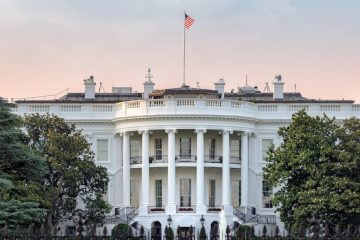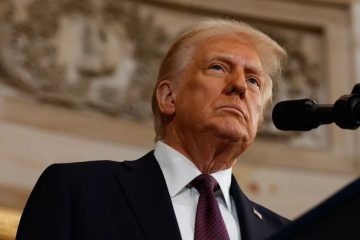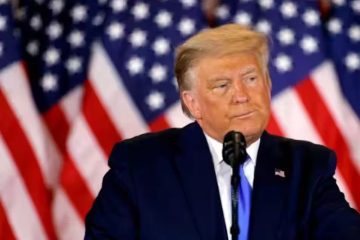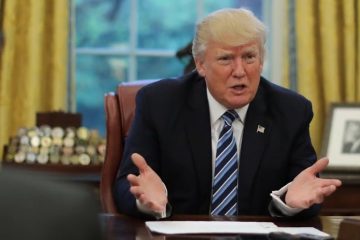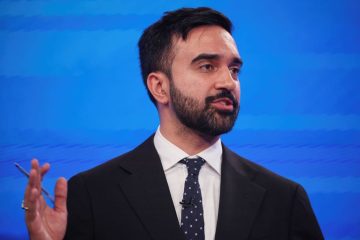Trump targets Harvard and other universities

Trump is focusing his attention on Harvard and various other universities, raising questions about the implications of this strategy and what it means for the institutions involved. The Trump administration has placed a hold on over $2.3 billion in federal funding allocated to Harvard University, intensifying a wider initiative targeting prestigious American universities — a decision that many perceive as a challenge to academic freedom. The recent decision, supported by a Justice Department-backed antisemitism task force, represents the most assertive measure taken to date in an ongoing initiative aimed at implementing ideological reforms within higher education institutions over the past several months.
Harvard is part of a larger trend. Over 60 educational institutions, including prominent names such as Columbia, Cornell, Princeton, and the University of Pennsylvania, are currently under federal investigations, experiencing funding suspensions, or subject to heightened scrutiny. The administration has outlined its objectives: to intensify efforts against antisemitism, reinstate “intellectual rigour,” and eliminate what it refers to as “ideological capture.” The response has been immediate and forceful. University leaders, civil liberties organizations, and legal experts contend that the government is exceeding its authority and utilizing civil rights legislation as a tool for political dominance over academic institutions.
The recent funding freeze at Harvard has raised questions among stakeholders and analysts alike. Investigations into the underlying causes are ongoing, as the institution navigates this unexpected financial development. On April 14, 2025, the Education Department’s antisemitism task force, functioning within the Justice Department’s civil rights division, revealed the suspension of $2.2 billion in grants and $60 million in contracts to Harvard University. The decision came in response to the university’s noncompliance with a range of extensive federal requirements.
Trump is advocating for the repeal of protest mask bans and the elimination of merit-based admissions policies. A five-page letter addressed to Harvard President Alan Garber detailed the demands, which included:
- The discontinuation of Diversity, Equity, and Inclusion (DEI) initiatives
- The prohibition of face coverings during campus protests has been implemented.
- Adopting a merit-based approach to hiring and admissions
- Fully cooperating with immigration enforcement efforts
- Refusing to grant recognition to student organizations that have been implicated in unlawful conduct or harassment.
- Conducting an external audit of departments that are under suspicion for ideological bias.
A senior federal official stated to The New York Times that the United States has made investments in Harvard University’s operations, highlighting the significance of scholarly discovery and academic excellence to the nation. However, it is important to note that an investment does not guarantee entitlement. President Garber issued a strong rebuttal, labeling the demands as politically driven and describing them as “an infringement on academic freedom.” Harvard’s legal team expressed significant apprehension, asserting that the federal action was illegal and represented a substantial risk to the institution’s autonomy.
The administration maintains that the crackdown is rooted in civil rights enforcement; however, its reach has broadened significantly, extending well beyond the issue of antisemitism. Universities are currently facing demands to reform their hiring practices, revise protest policies, enhance curriculum oversight, and improve immigration cooperation. Administration officials have reportedly characterized the initiative as a strategy to “overthrow” a prominent university and “readjust” the ideological equilibrium within American academia, as per CNN’s sources. A significant number of targeted institutions are situated in regions known for their liberal leanings or Democratic dominance. The federal demands often reflect overarching Republican policy objectives, including the elimination of DEI programs, restrictions on student protests, and the advocacy for merit-based systems in place of affirmative action-style admissions.
Harvard has argued that although certain demands pertain to antisemitism, the majority represent an overreach by federal authorities into the governance of campus affairs, encompassing aspects such as academic content and staffing decisions. The university, in a formal response backed by two leading law firms, characterized the dispute as part of a broader initiative to transform higher education via executive power. The ongoing clash is swiftly emerging as a focal point for opposition to what detractors characterize as Trump’s authoritarian style of governance. Former President Barack Obama endorsed Harvard’s position, describing it as a benchmark for upholding academic autonomy. Nonetheless, some experts caution that the university could be putting itself at significant risk.
Trump’s campaign against ‘wokeism’ and Diversity, Equity, and Inclusion programs continues to gain traction. Trump has initiated what he characterizes as a ‘war’ against wokeism. During a speech at the House of Representatives in March, the former President declared that the United States would “no longer be woke.” He contended that hiring and promotion decisions in professions including doctors, accountants, lawyers, and air traffic controllers should prioritize skills and competence over race or gender considerations. He further stated that wokeness had created challenges and was detrimental, asserting that its elimination had resulted in the country feeling “so much better.”
During his campaign and the early days of his presidency, Trump consistently maintained a strong stance against what he termed woke ideology. He quickly took action to dismantle a range of Diversity, Equity, and Inclusion initiatives that had been integrated into educational institutions and multiple industries. The term ‘woke’ has its roots in African American Vernacular English and gained prominence during the Black Lives Matter movement. By the conclusion of 2024, the term had transformed into a point of contention, employed by certain factions to disparage individuals perceived as left-leaning or excessively politically correct.
In a swift move following his inauguration, Trump enacted an executive order designed to dismantle the DEI policies established by former President Joe Biden. Since 2016, he has maintained a steady commitment to campaigns that challenge frameworks in educational institutions, corporate environments, and the military. These initiatives have garnered criticism from segments of the conservative populace, who characterize them as discriminatory towards white Americans. One of the key DEI policies rescinded during his second term is known as “Ending Radical And Wasteful Government DEI Programs And Preferencing.” A significant directive, titled “Ending Illegal Discrimination and Restoring Merit-Based Opportunity,” aims to deter federal agencies from granting contracts to firms that adopt DEI principles.
Numerous universities are facing increased scrutiny as they navigate the complexities of federal funding, with billions of dollars hanging in the balance.
Harvard University continues to be a leading institution in higher education, renowned for its academic excellence and influential research contributions.
Funding at risk: $9 billion
Already reduced: $2.3 billion
Key demands include the implementation of external audits, enhanced faculty oversight, and the monitoring of international students.
In a decisive move, the University has rejected the demands and has subsequently issued a $750 million bond aimed at enhancing its financial flexibility.
Columbia University has long been recognized as a prestigious institution in the realm of higher education, consistently attracting a diverse student body and faculty. Its commitment to academic excellence and research innovation positions it as a leader in various fields.
Funding shortfall reaches $400 million
Response: Adhered to federal guidelines
Recent developments include a reevaluation of Middle Eastern studies oversight, the implementation of stricter regulations regarding protests, and an enhancement of campus security measures.
Interim President Katrina Armstrong stepped down from her position in April.
Brown University has been a prominent institution in higher education, known for its rigorous academic programs and commitment to research and innovation.
Potential exposure stands at $510 million.
Reason: Accusations of inadequate response to antisemitism
Response: Information not available to the public
Cornell University has established itself as a prominent institution in higher education, known for its rigorous academic programs and research initiatives. The university continues to attract a diverse student body and maintain a strong reputation in various fields of study.
At stake: $1 billion
No official comment has been made; discussions are currently ongoing with federal agencies.
Northwestern University has been making headlines recently.
Potential exposure: $790 million
In a recent statement, the university asserted that it has long-standing measures in place to combat antisemitism. Officials conveyed their bewilderment at being singled out for criticism.
The University of Pennsylvania
Funding has been suspended, totaling $175 million.
A controversy from 2022 centered around a transgender athlete, rather than issues of antisemitism.
Disruption has been reported in research across seven departments, notably affecting areas such as drug testing and quantum computing.
Princeton University is a prestigious institution known for its rigorous academic programs and distinguished faculty.
Potential exposure: $210 million
Numerous grants have been put on hold, with further information beginning to surface.
Additional universities currently facing scrutiny:
Cornell University and Johns Hopkins University have reported instances of funding cuts or freezes. UC Berkeley, UCLA, NYU, USC, and George Washington University are presently facing investigations. More than 60 institutions are currently facing warnings or undergoing investigations related to DEI initiatives or complaints associated with antisemitism.
Legal analysts contend that the administration is pushing the boundaries of federal authority regarding university governance. Civil liberties organizations and academic institutions have initiated legal actions, claiming that Title VI of the Civil Rights Act, designed to prohibit discrimination in federally funded entities, is being leveraged to promote political agendas. A lawsuit initiated by the Foundation for Individual Rights and Expression (FIRE) characterizes the demands as “an overt effort to punish disfavoured speech.” Additional lawsuits contend that the administration is pressuring institutions to implement policy changes not directly related to antisemitism by leveraging threats of funding cuts.
The Trump administration continues to advance its agenda, undeterred by the increasing number of legal challenges it faces. Over 60 universities are currently undergoing active review, with officials indicating that they will persist in utilizing federal funding as a means to advocate for ideological reforms. As financial stakes reach into the billions, institutions are confronted with a critical decision: adhere to regulations or face the potential for significant financial repercussions. However, beneath the ongoing legal and financial disputes exists a more profound ideological struggle regarding the future of American higher education. This conflict centers on whether institutions should continue to serve as arenas for open inquiry or be redefined by federal regulations.



